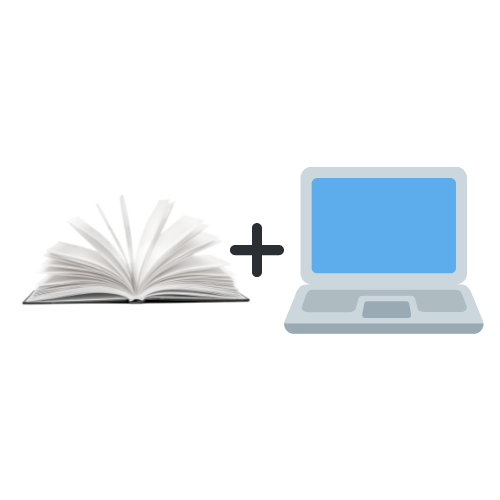For module 4, I decided to research ISTE coaching standard 4.2 Connected Learner, which states: “Coaches model the Student and Educator standards and identify ways to improve their coaching practice” (ISTE, n.d.). I am focusing on all three sub standards: Deepen Expertise Through Professional Learning: “Pursue professional learning that deepens expertise with the ISTE standards to serve as a model for educators and leaders.” Participate in PLNs: “Actively participate in professional learning networks to enhance coaching practice and keep current with emerging technology and innovations in pedagogy and the learning sciences. Establish shared goals with educators, reflect on successes and continually improve coaching and teaching practice” (ISTE, n.d.).

With these standards in mind, I decided to investigate the following questions: what online professional learning communities exist for EdTech coaches and which ones are in my region of the country that I can join locally for support to further my continuing education? I work in a very small district in Western Washington, so there are no EdTech Coaching PLCs available to me in my district. For me to connect with other EdTech coaches, I will need to seek experiences outside of my district and I will most likely need to seek online PLC experiences.
According to Crilley (2023, October 3) there are 7 steps that you should follow when looking to find your professional learning community. You need to think about what you want to get out of your PLC. Think about the products you already use and explore lots of products – this means the platforms that you are using, X, TikTok, Facebook, etc. You should reflect on the amount of time that you are willing to invest in a PLC, some will require more of a time investment than others. It is also completely acceptable to lurk before you jump in with both feet and join.
Ferlazzo (2021, April 21) along with four other educators shared their ideas about professional learning communities. Here are my favorite ideas from their discussion: know your context. If you are planning to start your own PLC, survey potential members, plan out your meetings, setting dates, topics, etc, with a set schedule. Set goals and be proactive. I also liked that they encouraged the use of social media. Given the fact that I am in a small rural district, I will need to use social media in order to build a PLC because there isn’t anyone local to connect with.
Cortez (2017, August 24) and Noah (2022, June 13) both write articles about leveraging the X platform, formerly known as Twitter. There are still multiple EdTech chats that occur weekly. You simply need to look for the following hashtags #EdTechChat and #EduChat. There are other educational PLCs that take place on X too, just find you hashtag and follow it. LinkedIn is another online platform that has online professional learning communities that EdTech coaches can join, one such group that I found was this one: https://www.linkedin.com/groups/12830627/
As an Apple Coach I belong to the Apple Coach PLC that is accessible online through the Apple Education group. Any Apple Coach has access to that group. There are also groups for Google Education Coaches as well, though I have not gone through the Google Coach program yet, I am only a Google Certified Educator at this time. Additionally, there is ISTE connect, but that has a fee associated with it, which may be cost prohibitive for some people, especially teachers on a budget.
In conclusion, having a PLC is important for an educator. As an English Teacher and a CTE teacher I have come to rely on my peers for support and encouragement over the years. As an Apple Coach I have also come to depend upon my Apple Coach community for support as well, so I know the value in having that PLC as well. I know that developing a PLC for myself as an EdTech coach will bring additional value to my coaching abilities as well.
References
Cortez, M. (2017, August 24). Twitter helps teachers develop professional learning communities. EdTech Magazine. https://edtechmagazine.com/k12/article/2017/08/twitter-helps-teachers-develop-professional-learning-communities
Crilley, A. (2023, October 3). 7 Steps for finding your professional learing community. Edtech Digest. https://www.edtechdigest.com/2023/10/03/7-steps-for-finding-your-professional-learning-community/
Dunworth, M. (2023). PLC Cycle.
Ferlazzo, L. (2021, April 21). 10 Strategies for building a professional learning community. Education Week. https://www.edweek.org/leadership/opinion-10-strategies-for-building-a-professional-learning-community/2021/04
ISTE. (n.d.). ISTE Standards: Coaches. International Society for Technology in Education. https://www.iste.org/standards/iste-standards-for-coaches
Noah, T. (2022, June 13). Taking ownership of your professional learning on Twitter. Faculty Focus. https://www.facultyfocus.com/articles/academic-leadership/taking-ownership-of-your-professional-learning-with-twitter/

4 replies on “EdTech PLC”
I agree that LinkedIn is an excellent way for EdTech coaches to connect with online professional learning communities. I like your diagram for the PLC cycle. Thank you for sharing!
Thank you Jane! I am excited for connecting with others online!
Great insights on leveraging technology in education! Your post about ISTE Coaching Standard 2b highlights the value of EdTech PLC in fostering professional growth. Well done!
Thank you Abdulelah. I am excited to keep growing.